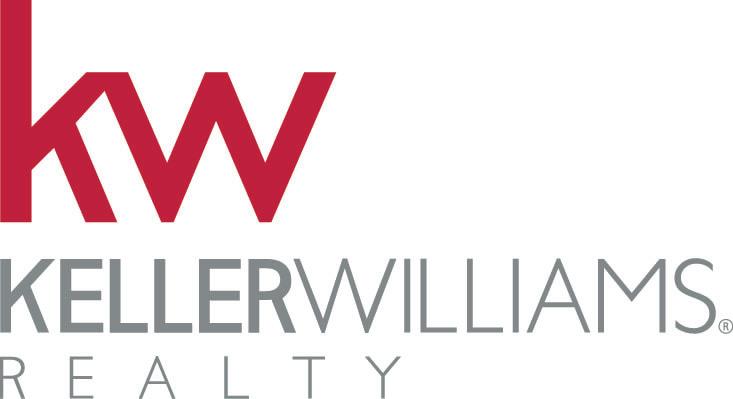








Here are a few of the benefits of having a place of your own.
If you get a fixed-rate mortgage on a home purchase, your mortgage payment can never change. Unless a renter is in a rent-controlled building or neighborhood, their rent is at risk of rising every year, jeopardizing budget stability.

When you make a mortgage payment, a portion pays the loan down each month, adding equity to your home. And, as the home appreciates, you gain the appreciation on the home’s entire value, not just the gain of cash you’ve invested.
Homeowners are allowed to deduct mortgage interest and property taxes when they file each year. The savings from tax benefits may be significant, often making owning the same, or cheaper, than renting.
As a homeowner, you can get to know your neighbors without having to hear them through the wall. Homebuyers usually plan to stay longer, too, creating community and social opportunities for you and your family.
You can add-on, paint your kid’s room any color you want, or change your floors from carpet to wood, without asking a landlord for permission. Even more, making the right home improvements can increase the value of your property.

When planning to apply for a
Some questions to ask yourself
• Do you have steady income and employment?
• Do you have money for the down payment and closing costs?
• Have you created a budget so you know how much you can afford?
• Do you make enough money to cover the monthly mortgage payment including taxes and insurance?
• Do you have a good credit history?


• Your home cost should generally be to 3 times your
• Your monthly housing costs generally should not be more than 28% of your
• Your total debt-to-income (DTI) should generally be less than or equal to 45% of your gross monthly income.
• Typically, you need to have $1500-2000 on hand to pay for expenses prior to closing on your new mortgage, i.e. inspections, earnest money, and appraisal.

We are mortgage banking professionals who are committed to making our communities a better place to live and work. We do this by providing innovative products and superior customer service. Our mission
What makes us
We are committed to delivering superior customer service
We offer competitive rates and financing.
We are a direct seller servicer (Ask us why that matters)
We close on time.
We always do the right thing, every time.


Our values
At Acopia, our entire team is dedicated to working together to serve you with integrity, honesty and exceptional service.
We‘ll be here for you throughout the mortgage process to answer every question.

Sweetest, most caring group of people I've ever seen! You've made becoming a new homeowner easy. Thanks for going the extra mile to make my dreams come true.
-Wendy G., Charlotte, NC
They welcomed my and made me feel safe! I’m very pleased with my home buying experience.
-Jonathan S., Elmore, AL
Acopia is the best! You couldn't ask for any better. They are professional, very helpful, nice and easy to talk to. I'm not very computer savvy, but they were very helpful and wanted to be sure I understood everything! I have used Acopia twice now and I highly recommend them to anyone!
-Reginald L., Monroe, GA
Everything was perfect and I cant say enough for the gang at Acopia. I will recommend highly all of my real estate friends and clients! You guys ROCK!!
-John S., Hendersonville, TN

Here are just some of the products that are available to you.
• FHA loans
• USDA, 100% financing available
• Down payment assistance (varies by state)
• VA loans, 100% financing available
• GNMA seller servicer
• Multiple MI options
• Fannie Mae HomeReady®
• Freddie Mac Home Possible® Advantage
• Down payment assistance (varies by state)
• FNMA and FHLMC seller servicer
We have several tools to help guide you through the homebuying process.

AcopiaGO mobile app
Apply for and manage your home loan, securely scan documents, utilize helpful mortgage calculators, and get instant updates - all while on the GO!
• Jumbo
• Manufactured
• Heroes program offers 0.25% lender credit to veterans, active military, law enforcement, firefighters, EMS/medical personnel and educators with an agent or REALTOR® match
• Non-agency mortgage options available
• HELOC and fixed second mortgages
• Many more, ask me about our other niche products

Hybrid eClosings save you time through a combination of wet signed and electronically signed loan docs, reducing time at the closing agent’s office.
Apply online to submit an online application in minutes, get prequalified, or upload documents safely and securely.

Loan processing
Your documentation will be fully reviewed and assembled per underwriting standards for the loan program selected. During this step, we will receive and verify appraisal and title. Processor will prepare the paperwork for the underwriter to review.
The underwriter will verify everything. They will evaluate the eligibility requirements of
Clear to Close is issued after all underwriting

Driver’s license, social security number verification may be required.
Sales contract and all addendums, or attachments signed by the sellers and purchasers involved in the transaction. For refinances, a copy of the note and warranty deed on the property being refinanced.
Let’s make sure you have everything you need to begin your homebuying journey.
Pay stubs (full and part time) covering the past 30 days and written verification of any additional income (social security, disability, etc.).
Bank statements for the past two consecutive months with all pages or most recent quarter if those funds are to be used or needed to show reserves.

Residence addresses for the past two years, including name, address and phone number of landlord if currently renting. First time home buyer programs require three year’s history. with for both current and previous employers are
Statement for investments or special assets for all stocks, bonds, 401(k) and other special assets for the past 2 months or most recent quarter if those funds are to be used or needed to show reserves.
Real property current value. If it is to be sold, provide a copy of the contract. If already sold, provide a copy of the settlement statement. If it’s to be rented, provide a copy of the current one year lease. If it is to be retained, we will need documentation on annual property taxes, Homeowners insurance or any HOA dues.
Self-employed borrowers: Complete personal and business tax returns with all schedules for the last 2 consecutive years, year-to-date profit and loss statement with balance sheet, if applicable, copies of 1099 forms for the last 2 consecutive years.




Do NOT take on new debt. The temptation is strong. There are so many big purchases that people want to make in connection with a move: appliances, window treatments, furniture, etc. Add to this the fact that, today, everyone offers easy terms and no money down — well, why not just do it?
Answer: because it will change your debt-to-income ratios, could postpone your closing as the lender waits for the new debt to be verified, and could lower your credit score.

o NOT close out any current credit accounts, transfer balances, or pay off collections without first consulting with your mortgage advisor.
Do NOT increase your credit card balances substantially.
Do NOT pack too soon. Well, go ahead and pack your clothes and dishes. But do not pack your bank statements, tax returns, or other important paperwork. Most especially, do not pack your drivers license or checkbook! More than one buyer has had closing delayed while a friend or relative hurried over with additional funds because the checkbook was in the moving van.

In short, do nothing that negatively impacts your ability to qualify for your mortgage loan, or initiates a new round of paperwork. If you have any doubts about doing something that may affect your ability to qualify for your mortgage loan, please consult your loan provider before you do it.
These suggestions are merely that—suggestions. No one is saying, flat out, that bad things will necessarily follow if you do any of the above. They are offered as cautions. Many buyers seem to view the mortgage application procedure as a static action, a snap shot of their financial lives at a given moment in time. It’s not. It’s an on-going process that takes into account everything you do right up until the day of closing.



Bankruptcy 7 = 2 years from discharge date
Bankruptcy 13 = 2 years from discharge date
*If discharged less than 2 years, a manual underwrite is required and must document that events leading to bankruptcy are not likely to recur
Foreclosure = 3 years from completion of foreclosure
*Short Sale = 3 years from date of
1. current at time of short sale and 2. debts paid on time 12 months preceding short sale and 3. short sale not done to take advantage of declining market.
*FHA manual underwriting guidelines apply if less than

• Bankruptcy 7 & 11 = 4 years from discharge date
• Bankruptcy 13 = 2 years from discharge date
• *Foreclosure = 7 years from completion of foreclosure
• Short Sale = 4 years from date of sale
*For Fannie Mae, Conventional nancing, if supporting documentation re ects that mortgage debt was discharged through a BK, the 4 year BK waiting periods may be applied in lieu of the 7 year Foreclosure waiting period.
• Bankruptcy 7 = 2 years from discharge date
• Bankruptcy 13 = 2 years from discharge date
• Foreclosure = 2 years from completion date
• Short Sale = 2 years from date of sale

USDA loans
• Bankruptcy 7 & 11 = 3 years from discharge date
• Bankruptcy 13 = 3 years from discharge date
• Foreclosure = 3 years from completion date
• Short Sale = 3 years from date of sale
Trying again?
If you‘ve had life-changing events happen, know when you may qualify to be a homeowner again.
Have questions? We’re here to help.

MYTH: The first step to buying a house is looking for a home.
Browsing is always fun, but making sure your credit is in top shape and getting prequalified to determine your budget is the first step.
There are many myths when it comes to buying a home. Reach out. I’m here to answer every question.
MYTH: Low down payment programs are only for first-time homebuyers.
MYTH: Renting is cheaper than buying a home

Source: Realtor.com
MYTH: Home Inspections are unnecessary
MYTH: You need to put 10-20% down for your home's down payment.
In reality, about 60% of homebuyers financed the purchase of their home using 6% or less for a down payment.
Source: Chenoa Fund
In some cities, the cost of renting may be less than or equal to a monthly mortgage payment You may end up saving money in the long run buying a home.
Source: Redfin.com
MYTH: The listing price is non-negotiable.
A few common mortgage terms and their meanings.

Adjustable rate mortgage. A mortgage with an interest rate that changes.
Loan-to-value ratio. Lenders use this to measure the risk associated with your loan.
MYTH: It's difficult to qualify for down payment assistance.
Down payment programs are available to buyers with all levels of credit scores and income. Find out about programs you may qualify for.
Source: Chenoa Fund
MYTH: A 30-year mortgage is the best option.
While monthly payments are lower than its 15-year counterpart, you could end up paying more for the life of the loan in interest.
Source: Realtor.com
Debt-to-income ratio. This reflects the percentage of debt you carry compared to your income sources.
MYTH: You can’t use gifts, loans or grants for your down payment.

Down payment assistance.
Your FICO score is a number typically on a 300-850 range, used by lenders to determine your ability to pay back borrowed debt.






